445,200 TONS OF MUNICIPAL SOLID WASTE (MSW) GENERATED IN RAMSEY AND WASHINGTON COUNTIES


“On behalf of the entire R&E Board, I offer sincere thanks for the outstanding work of everyone at R&E in 2020.”
Ramsey/Washington Recycling & Energy (R&E) staff rose to the challenge of 2020 with teamwork, flexibility, resolve and compassion.
The essential workers at the R&E Center kept the facility operational throughout the year. Staff wore masks, social distanced and implemented other safety measures to protect each other and ensure that crucial public services remained in operation. Program staff quickly pivoted their work to help the many people and businesses struggling in our communities. Food waste reduction efforts were refocused to assist those facing food insecurity. BizRecycling procedures and eligibility were altered so that the program could rapidly distribute funds to support small businesses. Throughout the tumultuous year, the board and staff diligently advanced projects that will improve the region’s waste management system, support racial equity and environmental justice, boost the local economy and benefit the health of people and the environment for generations to come. This includes significant work on enhancements to waste processing. With the help of $7 million appropriated by the legislature, construction is set to begin in 2021 on improvements to waste processing capabilities at the R&E Center.
Victoria Reinhardt
R&E Board Chair
Ramsey/Washington Recycling & Energy (R&E) is the organization through which Ramsey and Washington counties collaborate to reduce and manage waste. R&E employs 52 union and 22 administrative and professional staff. R&E staff develop and implement programs that help the community reduce waste and recycle better, collaborating with over 30 staff from the two counties in this work. R&E owns and operates the R&E Center, where all trash from the two counties is delivered so that it can be processed to recover value.
The R&E Board oversees this work and is comprised of commissioners from the two counties, as well as ex officio members from the City of Newport and the Minnesota Pollution Control Agency.
Victoria Reinhardt, Chair | Ramsey County Commissioner
Fran Miron, Vice Chair | Washington County Commissioner
Nicole Joy Frethem | Ramsey County Commissioner
Wayne A. Johnson | Washington County Commissioner
Stan Karwoski | Washington County Commissioner
Trista MatasCastillo | Ramsey County Commissioner
Mary Jo McGuire | Ramsey County Commissioner
Rafael Ortega | Ramsey County Commissioner
Lisa Weik | Washington County Commissioner
Gary Kriesel (alternate) | Washington County Commissioner
Jim McDonough (alternate) | Washington County Commissioner
Tom Ingemann (ex officio member) | City of Newport
Dave Benke (ex officio member) | Minnesota Pollution Control Agency
The COVID-19 pandemic dramatically affected life and work for everyone—2020 was an emotionally demanding and stressful year.
A COVID-19 business management plan was prepared early in the pandemic, and regularly reviewed and updated by the management team. Because of its role in processing trash, the R&E Center is an essential service. At the R&E Center, staff followed precautions to keep the facility operational and each other safe. Staff wore masks and practiced social distancing, and additional sanitation procedures were adopted.
Administrative and program staff worked remotely beginning in March, advancing important work in spite of the challenges remote work created. Across the organization, staff rose to the challenge of the pandemic, finding new ways to work, collaborate and connect with each other.
With many people facing food insecurity due to the pandemic, staff pivoted quickly to increase food recovery work.
R&E renewed its work with Second Harvest Heartland and initiated new contracts with Loaves & Fishes, Christian Cupboard Emergency Food Shelf and The Good Acre to support them in recovering food in the two counties and delivering it to people in need. Over $140,000 was allocated to these organizations in 2020, which resulted in 8,256,905 pounds of food being recovered and redistributed—food that would have become waste instead fed hungry people. Keeping this food out of the trash prevented 1,695 tons of carbon dioxide from being produced—equivalent to taking 367 cars off the road for a year.
In partnership with North Country Food Alliance and Saint Paul Farmers’ Markets, R&E piloted a new effort to collect excess produce from farmers markets. Goals of this initiative were to reduce food waste, provide fresh produce to those in need and offer financial support to farmers who had a particularly challenging year. R&E and partners were able to collect over 6,700 pounds of excess produce in just two days from the Woodbury Farmers Market, which was distributed to the community through three food shelves. Based on this pilot, this project will expand in 2021.
Additionally, staff developed playful and informative communication materials to help residents reduce food waste and save money. These messages were translated into multiple languages and included in boxes of food distributed in the community.
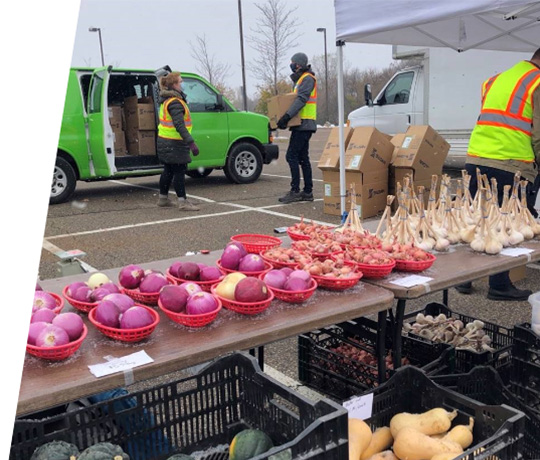
COVID-19 greatly impacted small businesses. In response, BizRecycling temporarily shifted funding to offer “Relief Grants” to businesses. Relief Grants supported items generally not eligible under traditional BizRecycling grants, but still consistent with R&E’s mission. Relief Grants helped fund recycling and organics hauling, sustainable to-go ware for food establishments, and refrigeration and supplies for food donation activities. A total of 153 Relief Grants were awarded, totaling $1,027,713. Of Relief Grant awards, one third were businesses owned by people of color. Over half of the grants were awarded to businesses with fewer than ten employees, and more than two thirds were awarded to businesses that had not previously engaged with BizRecycling, opening the door to new relationships.
BizRecycling—now in its sixth year!—helps businesses, non-profits, apartment buildings, schools and institutions reduce waste and recycle better. Through the program, businesses receive free on-site consultations and technical assistance and grants of up to $20,000 to implement best practices in waste management.
146 businesses received on-site consultations
15 businesses started collecting recycling
33 businesses started collecting organics
71 businesses made improvements to existing collection systems
96 businesses received grants
$582,002 in grants awarded
$37,244 in materials (for example, recycling bin labels) given to businesses to support recycling efforts
10% of businesses that received grants are owned by people of color
110 apartment buildings received on-site consultations
3 apartment buildings started collecting recycling
88 apartment buildings improved existing recycling collection systems
33 apartment buildings received grants
$352,946 in grants awarded
$108,077 in materials (for example, totes to help residents carry recyclables from their apartments to the recycling dumpster) given to 117 apartment buildings to support recycling efforts
9% of buildings that received grants are owned by people of color and 26% are located in neighborhoods highly vulnerable to climate change
Rose Mall Apartments is a 162-unit property in Roseville. The building’s property manager learned about BizRecycling from her trash hauler and reached out for support. She took advantage of the program’s free recycling totes and educational materials, which are now included as part of a move-in gift for all new residents. Rose Mall also received a grant for additional recycling containers in common areas and an enclosure for the recycling collection area to keep trash from blowing into the neighborhood. Changes implemented at Rose Mall led to significantly fewer plastic bags in the recycling and 5,241 pounds of recycling diverted from the trash annually. The property manager was so happy with the experience that she’s getting ready to submit a BizRecycling grant application for another property she manages.
“It’s a great program. There’s no catch! Helps us, helps our residents, helps the city, and helps increase recycling and decrease trash volume.” – Rose Mall Property Manager
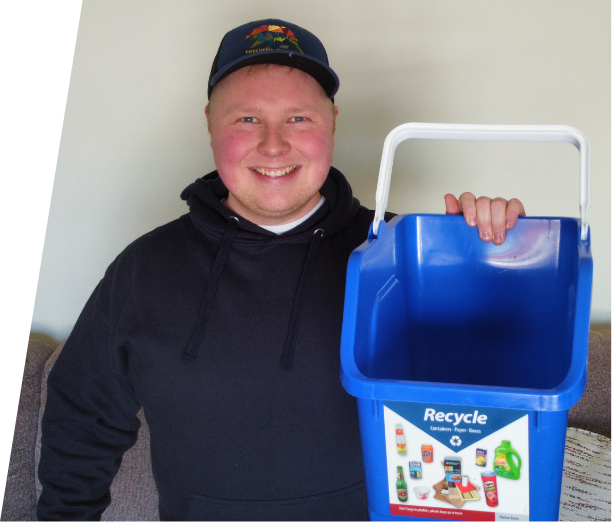
In April, Wilder Research completed a comprehensive evaluation of BizRecycling, including analysis of existing program data, survey of past recipients of site visits and grants, follow up interviews with 25 businesses, and interviews with technical assistance providers. Key findings included:
• BizRecycling has been especially successful in reaching three larger industries – restaurants and bars; community and social services; and food processors, wholesalers, and grocery – with 20-35% of businesses in those industries having taken advantage of the program.
• For business that already had recycling and/or organics services in place, 37% decreased their trash volumes, 41% increased their volume of recycling and 54% increased their volume of organics collected. This indicates the program is having the intended impact on collection volumes.
• At least 70% of respondents said the practices they implemented with BizRecycling were still in place at the time of the survey (conducted one to five years after they received their grant).
• After participating in BizRecycling, nearly all businesses were recycling cardboard, and over 90% were recycling paper, glass, plastic and metal.
BizRecycling is using information from the Wilder report to support planning efforts for future program improvements.

The Business Pollution Prevention Program was launched in 2020 to assist dry cleaners, auto body shops and painting and printing businesses switch to cleaner and safer technologies and practices in order to reduce perchloroethylene (PERC) and volatile organic compounds (VOCs). The program offers financial assistance of up to $50,000, as well as free technical assistance. While the program was challenging to launch in a year when many businesses were struggling, three program applications were received in 2020, and the program is likely to grow in 2021.

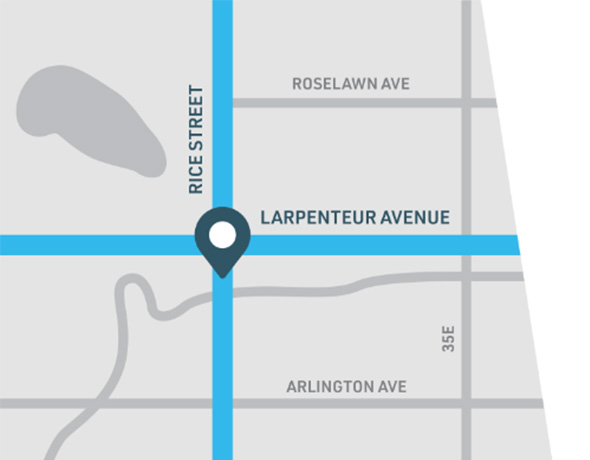
R&E and Ramsey County are collaborating with local organizations and residents to plan a community space near the intersection of Rice Street and Larpenteur Avenue. This space would be designed to encourage the reuse and repair of items like clothes, lamps and bikes, and the sharing of skills, knowledge and resources between community members. Surveys and listening sessions engaged 171 residents in the area to build relationships and solicit ideas for the space.
R&E is working to increase use of compost derived from food scraps in order to build capacity for food scraps management. In conjunction with International Compost Awareness Week in May, R&E purchased 510 cubic yards of compost made from food scraps. This compost was distributed for use by community gardens, home gardeners and Ramsey County Public Works, accompanied by messaging to educate people about the connection between food scraps and compost and the benefits of using compost in gardening projects.
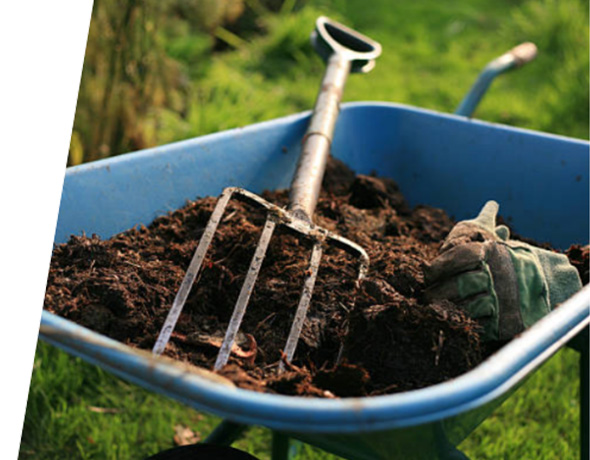
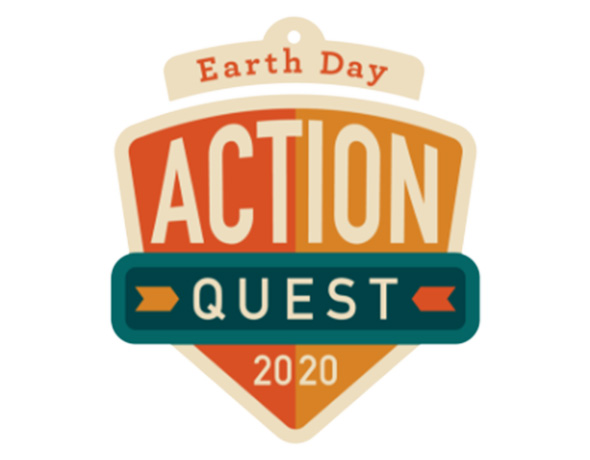
To celebrate the fiftieth anniversary of Earth Day, staff from R&E and the counties developed Earth Day Action Quest, a series of COVID-appropriate activities that encouraged kids and their families to reduce waste and appreciate nature. The campaign site had nearly 1,500 visitors.
To celebrate America Recycles Day, R&E developed key recycling messages in Spanish, Somali, Karen and Vietnamese and shared these with partners and multi-cultural media outlets.
Working with six transfer stations and over 80 haulers, the R&E Center processes all the trash from residents and business in Ramsey and Washington counties. This is about 13% of the state’s trash. At the R&E Center, trash is processed to recover recyclable metals and to generate refuse-derived fuel. The refuse-derived fuel is sent to Xcel power plants, where it is used to generate electricity. Processing trash keeps it out of landfills and recovers its resource value.
98,482 FEWER METRIC TONS OF CO2
produced than if trash had been landfilled – equivalent to taking 21,276 cars off the road for a year
RECOVERED 676 TIRES, 191 ELECTRONIC DEVICES AND 1,606 APPLIANCES.
These items were sent to facilities where components could be recycled.
12,500 HOMES POWERED FOR A YEAR
by electricity generated from refuse-derived fuel produced at the R&E Center.
Ramsey and Washington counties have been evaluating alternate waste management technologies for nearly two decades in an effort to achieve long-term environmental, economic and social benefits for the region.
In 2019, R&E applied for state bonding funds to support improvements at the R&E Center. In evaluating R&E’s application, numerous representatives toured the facility. These tours included a visit by Governor Walz in February 2020, as well as members of the state house and senate. The legislature passed a bonding bill in October, which was signed into law by Governor Walz and included seven million dollars to support improvements to the R&E Center. These processing improvements include a system for collecting food scraps from residents and a system for recovering additional recyclables from the trash.
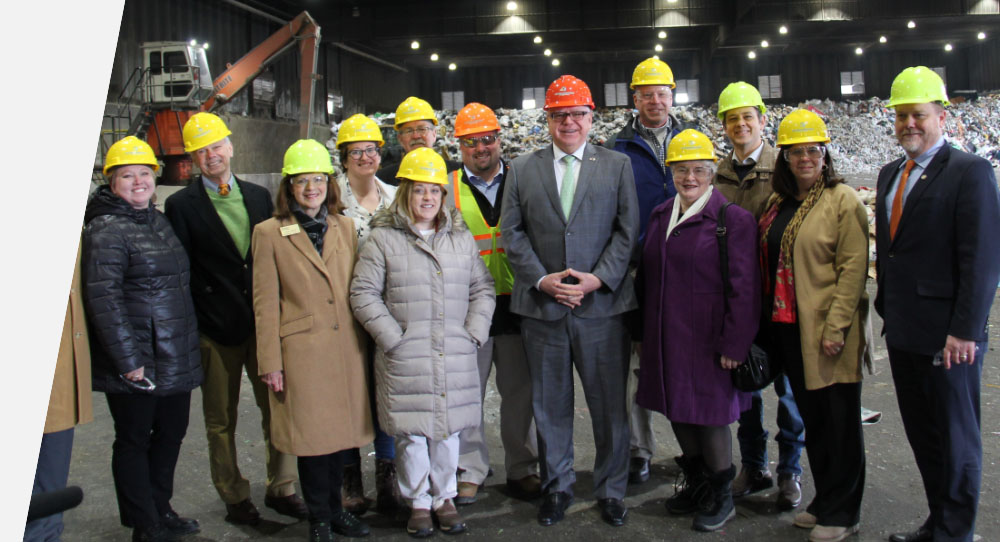
By weight, food scraps make up about 20% of trash collected in the two counties. In 2022, R&E will launch a program to collect food scraps from residents at their homes so that this material can be converted into nutrient-rich compost and biofuel. This service will be available to all residents in the two counties at no cost.
The program will utilize “food scrap bags” to collect this material. Food scrap bags will be co-collected with trash and then sorted from the trash after collection. This system requires no additional carts or collection trucks. Here’s how it will work:
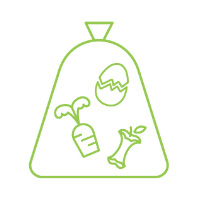
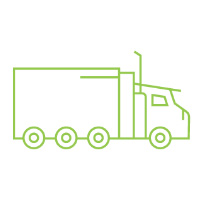
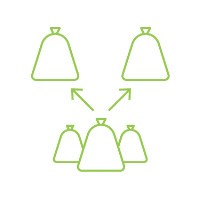
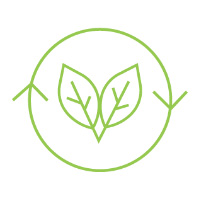
Food scrap bags are durable and compostable. They are designed to withstand the trip in a garbage truck and also to eventually break down along with their contents.
In 2020, funding was secured for this project. R&E staff did extensive work to prepare for this program, including procurement planning, testing and community engagement.
In developing the food scrap bags program, R&E and the counties have engaged with numerous stakeholders.
Residents: Surveys and in-person engagement with residents indicated that 90% would be interested in participating in the food scrap bags program. Engagement with residents informed decisions regarding bag size and delivery method for the program.
Municipalities: County administrators/managers and recycling coordinators from all municipalities were surveyed regarding the program. 87% of respondents liked the food scrap bags concept (3% disliked the concept), and 92% indicated that they would be willing to partner on education and outreach to support the program.
Haulers and transfer stations: R&E is in conversation with haulers and transfer stations regarding program development.
• 280,000-400,000 aluminum cans per day
• 436,000-789,000 #1 plastic containers (water bottles) per day
• 52,000-90,000 #2 plastic containers (milk jugs) per day
• 6,700-13,600 pounds of cardboard per day
New equipment will recover additional recyclables from the trash that is delivered to the R&E Center, including metals, cardboard and certain plastics. While recycling at home and work results in higher quality and more recyclable material, many recyclables are still placed in the trash each year.
The counties and R&E will continue to work to encourage household and workplace recycling, but this new equipment will help recover the recyclables that remain in the trash. In 2020, funding was secured for this project, and staff planned for its implementation.
R&E is exploring new processing options for recovering value from trash managed at the R&E Center, which will help the facility transition away from producing only refuse-derived fuel or manage this fuel differently, depending on new technologies that may include anaerobic digestion, gasification and/or chemical recycling, among others. In 2020, R&E released the first phase of a two-phase procurement process to solicit potential partners in this work.
R&E operates out of three budgets: the Joint Activities Budget, the Facility Budget and the Equipment Maintenance Budget.
JOINT ACTIVITIES BUDGET
Project Management
1,594,092
Business Recycling
2,835,966
General Outreach
754,456
Policy Evaluation
716,005
Ramsey County Additional Programs
954,743
TOTAL
6,855,262
The Joint Activities Budget supports a variety of projects to meet goals and strategies in county waste management plans and is funded by Ramsey and Washington counties. Both counties charge a fee associated with collecting trash, referred to as the County Environmental Charge or CEC. A portion of CEC fees collected funds the Joint Activities Budget.
FACILITY BUDGET
Personnel
6,748,015
Fuel
5,809,646
Landfill
6,076,254
Transportation
6,172,962
Transloading
2,275,753
Operations
7,704,639
Debt Service
1,697,155
TOTAL
36,484,424
The Facilities Budget supports the operation of the R&E Center. This enterprise budget is funded by tipping fees.
EQUIPMENT, MAINTENANCE AND REPAIR BUDGET
Equipment
506,380
Maintenance
638,450
TOTAL
1,144,830
The Equipment Maintenance Budget supports equipment maintenance and replacement. This budget is funded by sale of recyclables recovered from the waste stream.